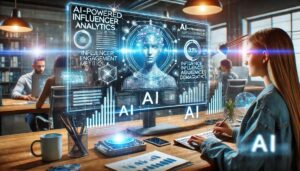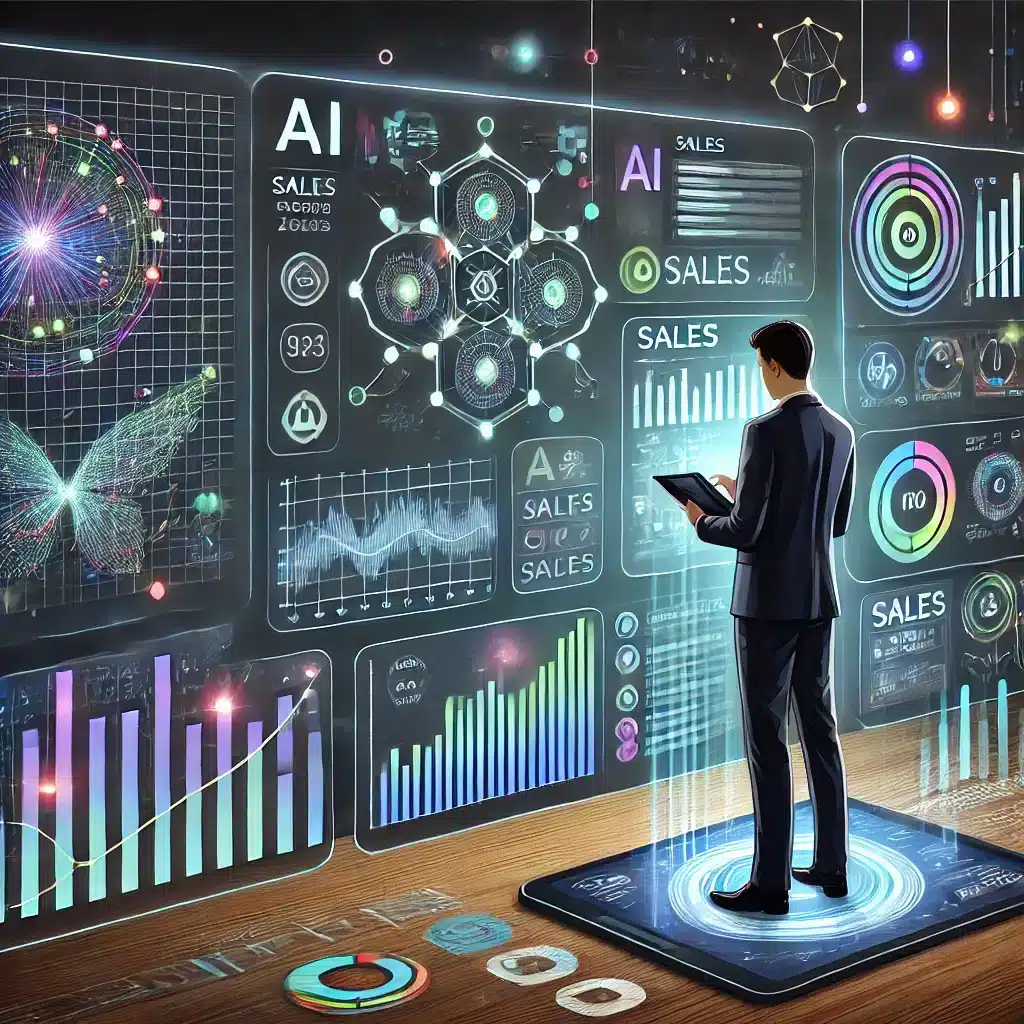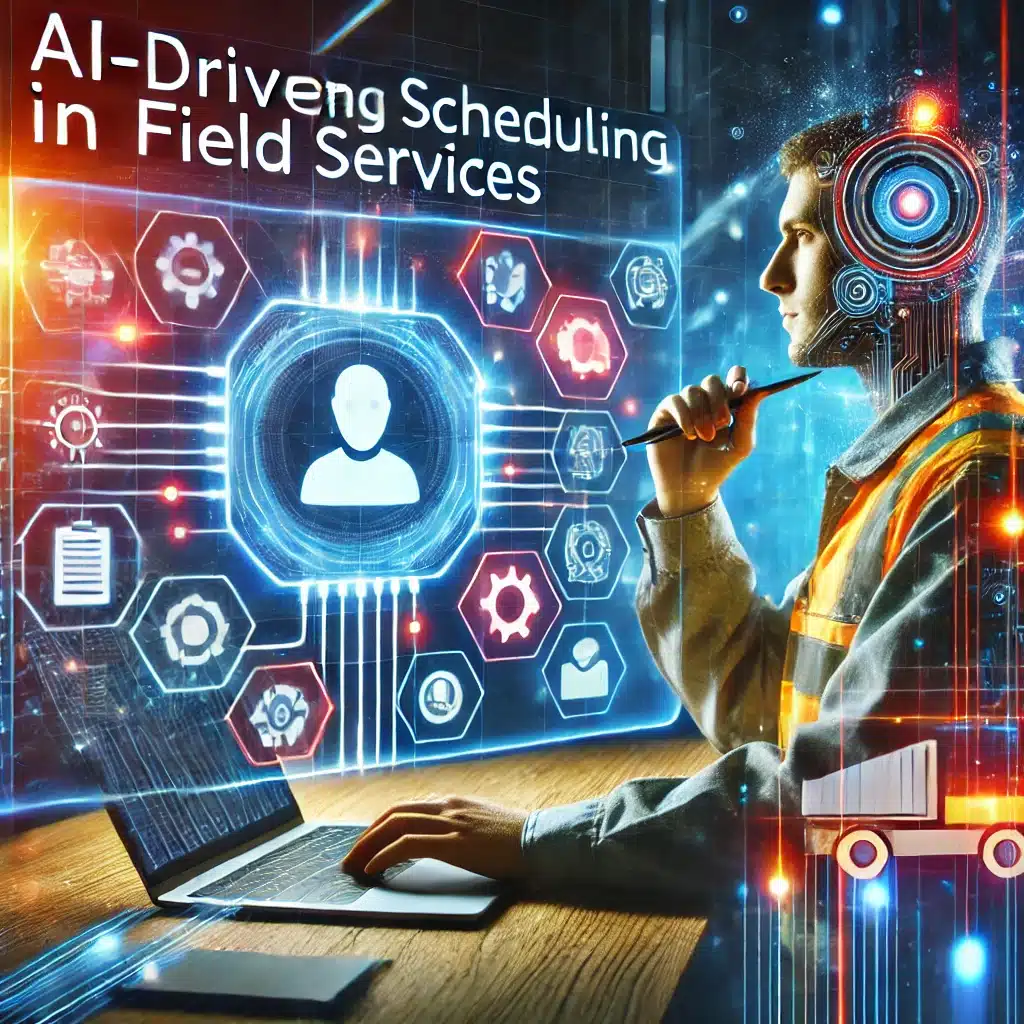As AI continues to erase boundaries in various domains, industries are quickly adopting innovative technologies into their functions, and the marketing industry is not an exception. Chatbots, AI-supported customer service representatives, and smart recommending systems first showcased the advancement of AI in marketing. The role of bots in influencer marketing pales in comparison to the changes AI is likely to lead to in the coming years.
What is the Role of AI in Influencer Marketing?
How is AI Transforming Influencer Marketing?
The application of artificial intelligence improves the process of influencer identification, campaign management, and content creation in influencer marketing. Today, brands can make use of AI technologies to assess large volumes of data on social media, enabling them to pinpoint the right influencers. The aims of this study are to determine the use of AI in influencer marketing to make it more effective. It assists in improving the efficiency of the influencer marketing campaign and also makes sure that there is an effective partnership between the brand and the influencer to promote business growth. AI helps marketers to focus on strategies that fit into their overall marketing strategy for the business, thereby leading to successful influencer collaborations.

What Are AI Tools Used in Influencer Marketing?
In the field of influencer marketing, various AI solutions offer assistance to brands by automating processes and unveiling crucial insights. Platforms like HypeAuditor and Upfluence specialize in analyzing engagement rates, audience demographics, and other relevant metrics, streamlining the process of brand partnership identification. These brands leverage AI algorithms that classify influencers according to preset descriptors, which allows marketers to filter for those that suit their brand identity and consumer base most closely. Moreover, AI technologies have the capability of automating content creation, social listening, and sentiment analysis, thereby enhancing the productivity of influencer marketing campaigns.
How Does AI Enhance Influencer Marketing Campaigns?
AI augments the effectiveness of influencer marketing campaigns by equipping brands with actionable insights for optimizing content strategies and engagement plans. AI tools track user interactions and preferences, enabling brands to tailor their messaging and ensure relevance to their target audience. Additionally, AI’s capabilities in forecasting trends and shifts in consumer behavior enable brands to make immediate, responsive changes to their marketing strategies. AI’s flexibility substantially raises the chances of favorable outcomes from influencer partnerships by optimizing campaigns using insights derived from comprehensive data analysis.
How Can Brands Identify Authentic Influencers Using AI?
What is Influencer Identification in the Context of AI?
Influencer identification in the context of AI refers to the process of using artificial intelligence to discover influencers who align authentically with a brand’s values and audience. This process goes beyond traditional metrics such as follower count. AI algorithms analyze various data points, including engagement rates, audience demographics, and content relevance, to determine which influencers truly connect with their followers. By employing AI in influencer identification, brands can ensure they partner with individuals who genuinely engage with their audiences, leading to more authentic and effective influencer marketing campaigns.
How to Use AI for Authentic Influencer Partnerships?
To use AI for authentic influencer partnerships, brands should start by setting clear objectives for their influencer marketing initiatives. Once goals are established, they can utilize AI tools to analyze potential influencers based on their content strategies, engagement levels, and alignment with the brand message. By leveraging AI-driven insights, brands can identify influencers who not only have a strong following but also foster genuine relationships with their audiences. This approach significantly increases the chances of creating successful influencer marketing campaigns that resonate with consumers and lead to higher conversion rates.
What Metrics Can AI Analyze for Finding Genuine Influencers?
AI can analyze a wide array of metrics to help brands find genuine influencers. Key metrics include engagement rates, which reveal how well an influencer connects with their audience, and audience demographics, which help brands determine if the influencer’s followers match their target market. Additionally, AI tools can assess the authenticity of an influencer’s following by identifying fake accounts and engagement inflation. Other valuable metrics include content performance, sentiment analysis of comments, and historical collaboration success rates. By focusing on these metrics, brands can make informed decisions when selecting influencers for their campaigns.
What Are AI Influencers and How Do They Impact Marketing?
What is a Virtual Influencer?
A virtual influencer is a computer-generated character that engages with audiences on social media platforms, much like a human influencer. These AI influencers are designed with unique personalities, aesthetics, and narratives that appeal to specific demographics. The rise of virtual influencers offers brands innovative opportunities to create content that captivates audiences without the complexities that come with human influencers, such as scheduling conflicts or personal brand controversies. As the technology behind virtual influencers advances, their impact on the marketing industry continues to grow, offering brands a creative and controlled avenue for their influencer marketing campaigns.
How Do AI Influencers Compare to Human Influencers?
AI influencers differ from human influencers in several fundamental ways. While human influencers bring authenticity and relatability to their content, virtual influencers offer brands a level of control over their messaging and image. AI influencers can be programmed to represent a brand’s values precisely, ensuring that the content they create aligns perfectly with marketing strategies. However, the challenge lies in the perception of authenticity. While some audiences may engage with virtual influencers, others might prefer the human touch and genuine experiences that human influencers offer. Brands must carefully consider their target demographics when deciding between AI and human influencers for their campaigns.
What Is the Future of AI Influencers in Marketing?
The future of AI influencers in marketing appears promising as technology continues to evolve. As AI-driven influencer marketing becomes more sophisticated, brands are likely to see an increase in the use of virtual influencers in their campaigns. The ability to create hyper-targeted content and engage with audiences in innovative ways will make AI influencers a valuable asset in the marketing industry. Furthermore, as social media platforms adapt to changing consumer expectations, the role of AI influencers will likely expand, providing brands with even more opportunities to personalize content and enhance their marketing strategies. The integration of AI and influencer marketing will shape how brands connect with consumers in the coming years.
How Can Brands Work with AI Influencers Effectively?
What Strategies Should Be Used in AI Influencer Marketing Campaigns?
Brands looking to work effectively with AI influencers should adopt strategic approaches that maximize the potential of their collaborations. First, establishing clear objectives for the influencer marketing campaign is crucial. Next, brands should utilize AI tools to identify the right virtual influencers based on their target market and desired engagement levels. Crafting compelling narratives around the AI influencer’s character can enhance audience engagement, while consistent communication and collaboration will ensure that the influencer’s content aligns with the brand’s message. Additionally, brands should remain open to experimenting with different content formats, leveraging the unique capabilities of AI influencers to create visually captivating and memorable campaigns.
How to Personalize Content with AI Influencers?
Personalizing content with AI influencers involves tailoring messages and visuals to resonate with specific audience segments. Brands should use data analytics to understand audience preferences and behaviors, allowing for the creation of content that aligns with their interests. By leveraging natural language processing, brands can ensure that the language and tone used in influencer content reflect audience sentiments and expectations. Furthermore, incorporating feedback loops where audience interactions are analyzed can continuously refine content strategies, making AI influencers an integral part of personalized marketing efforts. This approach enhances engagement and fosters a deeper connection between the brand and its target consumers.
What Are the Benefits of Collaborating with AI Influencers?
Collaborating with AI influencers offers numerous benefits for brands looking to enhance their influencer marketing campaigns. One of the primary advantages is the ability to maintain a consistent brand image, as virtual influencers can be controlled more precisely than human counterparts. Additionally, AI influencers can operate 24/7, creating content and engaging with audiences without the constraints of human schedules. In fact, this constant presence allows brands to maintain continuous engagement with their followers. Moreover, the use of AI influencers can lead to innovative marketing strategies that captivate audiences in novel ways, potentially resulting in higher conversion rates and brand loyalty. As the influence of AI in influencer marketing grows, brands that embrace these collaborations will likely find themselves at the forefront of the marketing industry.
How is Data Analysis Essential in AI Influencer Marketing?
What Data Points Should Brands Analyze for Influencer Marketing?
Data analysis is essential in AI influencer marketing as it provides insights that inform decision-making throughout the influencer campaign lifecycle. Brands should analyze data points such as engagement metrics, audience demographics, content performance, and sentiment analysis to gain a comprehensive understanding of how influencers interact with their audiences. Tracking these metrics allows brands to assess which influencers are most effective in driving engagement and conversion, ensuring that marketing strategies remain aligned with consumer interests. Additionally, analyzing historical data from previous campaigns can help brands refine their influencer selection and content strategies for future initiatives.
How Can AI Tools Help in Data Analysis for Influencer Campaigns?
AI tools play a crucial role in simplifying data analysis for influencer campaigns by automating the process of collecting and interpreting vast amounts of information. These tools can quickly analyze engagement rates, audience characteristics, and historical campaign performance, providing brands with actionable insights that support data-driven decision-making. By leveraging AI in data analysis, brands can identify trends and patterns that might go unnoticed through manual analysis. This capability enables marketers to optimize their influencer campaigns in real-time, ensuring they adapt to changing audience behaviors and preferences effectively.
What Role Does Natural Language Processing Play in Influencer Marketing?
Natural language processing (NLP) is a pivotal component of AI in influencer marketing, as it allows brands to analyze and understand the sentiments expressed in audience interactions with influencer content. By utilizing NLP, brands can gauge audience reactions to campaigns, identify positive or negative sentiments, and adjust their strategies accordingly. Furthermore, NLP can enhance the personalization of content by ensuring that the language used in influencer campaigns resonates with the target audience’s preferences and cultural nuances. This capability not only improves engagement but also fosters a deeper connection between brands and consumers, ultimately leading to more successful influencer marketing efforts.
Conclusion
The incorporation of AI in Influencer Marketing is revolutionizing the ways companies relate to influencers, preserving brand safety and improving efficiencies. AI data analytics facilitates and empowers brands to establish engagement metrics and drive conversions from the identification of influencers to campaign enhancement. Adaption of AI technology will strategically benefit companies amid the complexities of digital marketing.



